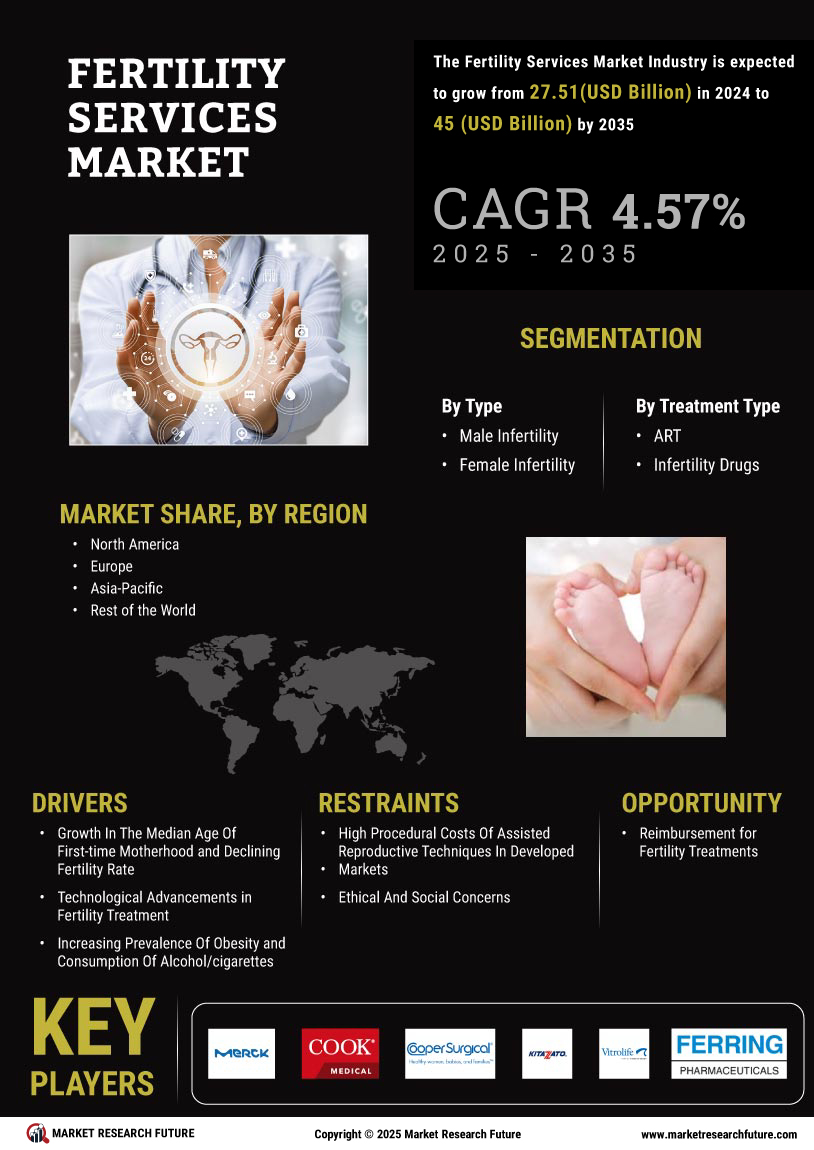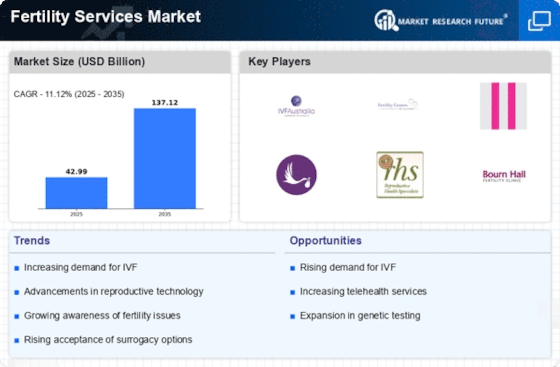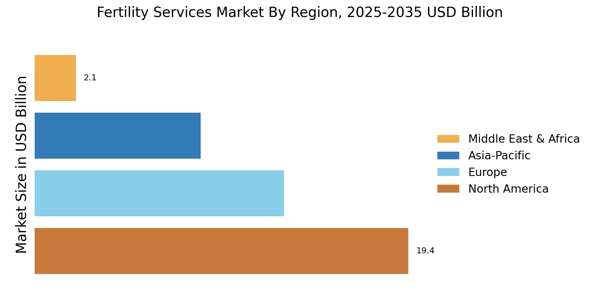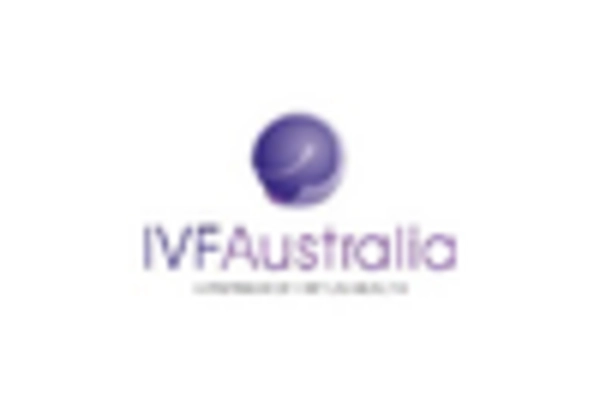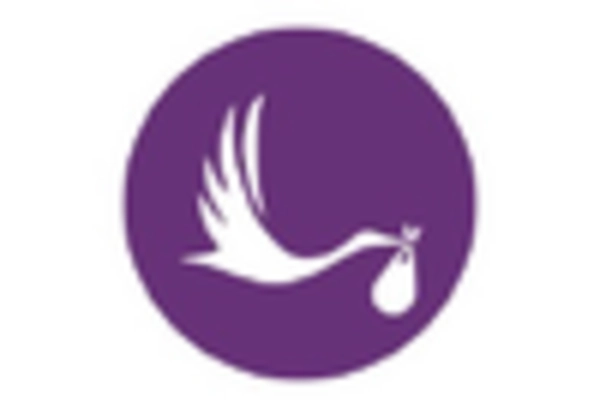Changing Societal Norms
The Fertility Services Market is influenced by evolving societal norms regarding family planning and childbearing. As societal attitudes shift, more individuals and couples are opting to delay parenthood for various reasons, including career aspirations and personal development. This trend has led to an increase in the number of people seeking fertility services later in life, as age-related fertility declines become a concern. The acceptance of assisted reproductive technologies as a viable option for family planning is also on the rise. Consequently, fertility clinics are witnessing a surge in demand for services tailored to older patients. This changing landscape suggests that the market will continue to expand as societal norms evolve, reflecting a broader acceptance of diverse family structures.
Rising Infertility Rates
The Fertility Services Market is experiencing a notable increase in demand due to rising infertility rates. Factors such as delayed childbearing, lifestyle changes, and environmental influences contribute to this trend. According to recent data, infertility affects approximately 10 to 15% of couples worldwide, leading to a growing need for assisted reproductive technologies. This situation compels individuals and couples to seek fertility services, thereby driving market growth. As awareness of infertility issues rises, more people are likely to explore available options, including in vitro fertilization (IVF) and other assisted reproductive techniques. The increasing prevalence of conditions such as polycystic ovary syndrome (PCOS) and endometriosis further exacerbates the demand for fertility services, indicating a robust market potential.
Growing Awareness and Education
The Fertility Services Market benefits from an increase in awareness and education surrounding reproductive health. Campaigns aimed at educating the public about fertility issues and available treatments have gained momentum, leading to a more informed population. This heightened awareness encourages individuals to seek assistance sooner rather than later, which is crucial given the time-sensitive nature of fertility treatments. Educational initiatives, often supported by healthcare providers and non-profit organizations, aim to demystify fertility challenges and promote early intervention. As more people understand the importance of reproductive health, the demand for fertility services is expected to rise. This trend indicates a shift towards proactive health management, which could significantly impact the market landscape.
Advancements in Reproductive Technologies
Technological innovations play a pivotal role in shaping the Fertility Services Market. The introduction of advanced reproductive technologies, such as preimplantation genetic testing (PGT) and cryopreservation techniques, enhances the success rates of fertility treatments. These advancements not only improve the chances of conception but also provide patients with more options tailored to their specific needs. For instance, the use of artificial intelligence in embryo selection is gaining traction, potentially increasing the efficiency of IVF procedures. As these technologies continue to evolve, they are likely to attract more patients seeking effective solutions for infertility, thereby propelling market growth. The integration of cutting-edge technologies into fertility services signifies a transformative shift, making treatments more accessible and effective.
Regulatory Support and Policy Initiatives
The Fertility Services Market is positively impacted by supportive regulatory frameworks and policy initiatives aimed at enhancing access to fertility treatments. Governments and health organizations are increasingly recognizing the importance of reproductive health, leading to the implementation of policies that promote fertility services. These initiatives may include funding for fertility treatments, insurance coverage for assisted reproductive technologies, and the establishment of guidelines to ensure quality care. Such regulatory support not only encourages healthcare providers to expand their services but also alleviates financial burdens for patients seeking treatment. As more countries adopt favorable policies, the accessibility and affordability of fertility services are likely to improve, thereby stimulating market growth.
